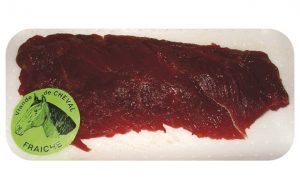More than a year-and-a-half after the horsemeat scandal broke, it has emerged that seven European countries are still mislabelling meat, and there are further concerns about horsemeat importation from outside the EU.
There was outrage from consumers last year when widespread food fraud was discovered across the UK and Europe, which led to calls for a mass overhaul of the traceability of meat sources.
Despite this, the European Commission has revealed that DNA testing, which took place between April and June this year, still found 16 cases of horsemeat being labelled as beef out of 2,622 samples taken.
The number of cases was a marked decrease from similar tests last year and there were no cases confirmed in the UK or Ireland.
Animal welfare charities have welcomed the “significant improvement”, but are still concerned about the welfare of horses involved in the food chain.
“It’s encouraging to see the reduction, but alarming that this is going on at all given the scale of last year’s crisis,” World Horse Welfare’s Roly Owers told H&H.
“Huge equine welfare concerns remain in the horsemeat trade, especially with the illegal market, something that is much to Europe’s shame. Making matters worse, without effective equine identification, enforcement is nigh on impossible and horses are likely entering the food chain when they should not, putting human health at risk.”
Importation argument
Concerns have also been raised about the importation of horsemeat from outside the European Union. The Humane Society International (HSI) reiterated its call last month for the importation of all horsemeat from outside the EU to be stopped.
Joanna Swabe, HSI EU director, said: “The EU import requirements look great on paper, but the  implementation thereof by non-EU countries has been farcical.”
implementation thereof by non-EU countries has been farcical.”
The HSI has also repeatedly warned that the measures implemented by Canada and Mexico to prevent meat from horses that have been treated with banned substances — such as bute — from entering the EU food system are fundamentally flawed and susceptible to fraud.
“Even the European Commission’s own audits have highlighted this, which makes it all the more outrageous that they have failed to take action to suspend the import of horsemeat products that do not meet EU food safety standards,” Ms Swabe added.
Investigation delays
Professor Chris Elliott, from Queen’s Institute for Global Food Security, Belfast, was first tasked with undertaking an independent review into the horsemeat scandal in June 2013. However, last month’s Parliament reschuffle — in which environment secretary Owen Paterson was replaced by Liz Truss — has resulted in a further delay to its publication, which is now expected early next month.
In the meantime there is still widespread distrust from the general public about the source of meat being sold in the UK.
“I think it is very likely that horsemeat is still entering the food chain and that people in the UK are eating it,” said an H&H reader.
It was announced this week that Queen’s University has also been awarded £500,000 to investigate global food fraud. Prof Chris Elliott will look into vulnerabilities in the food chain and offer solutions to building consumer confidence.
First published in H&H magazine 21 August 2014

